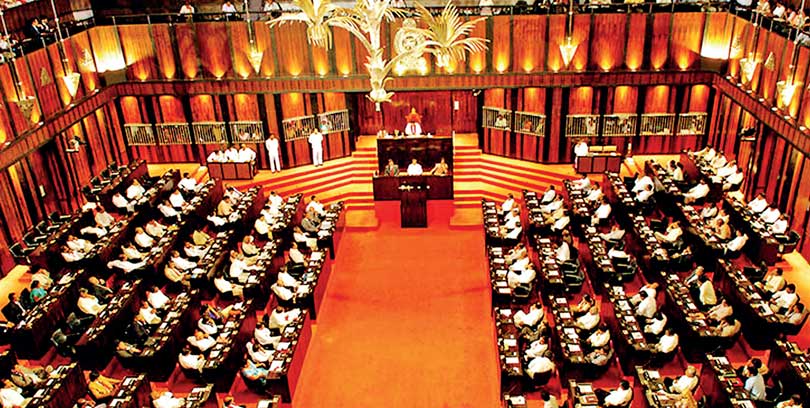Monday Feb 16, 2026
Monday Feb 16, 2026
Tuesday, 3 December 2024 00:00 - - {{hitsCtrl.values.hits}}

If the executive fails to act, the appropriate oversight committee of Parliament must act
The elements of a solution can be discerned: Use the trial-at-bar and direct appeal to Supreme Court procedure used in Mahanama. Work out a solution, in the form of an amendment to the relevant statute if necessary, to expedite the appeal.
But this will still not put a big fish behind bars within 12 months. But it will get the job done within the term of a government, unlike in the case of Premaratne who served in the 6th Parliament which ended in 2010. The case dragged on through the 7th, 8th, and 9th Parliaments
 I was at a meeting where a highly respected and experienced colleague said the Government must conclude a successful prosecution of a “big fish” within the first year or lose all credibility. They rode to power on the corruption narrative and have to deliver, he said.
I was at a meeting where a highly respected and experienced colleague said the Government must conclude a successful prosecution of a “big fish” within the first year or lose all credibility. They rode to power on the corruption narrative and have to deliver, he said.
If he is right, I thought, the Government is in trouble. Unlike my colleague, I had done timelines for the big-fish cases.
In 2007, a Deputy Minister (a big fish) took a bribe of Rs. 50,000 to give a job. In 2017, the High Court found him guilty. The appeal in Premaratna was turned down earlier this month. Ten years to a decision; another seven years for the appeal.
On 3 May 2028, two senior officials (big fish) were arrested counting Rs. 2 million in marked notes in a hotel parking lot. The decision in Mahanama v. CIABOC was given by a three-judge bench on 19 December 2019. Bypassing the Court of Appeals, the appeal went directly to the Supreme Court. The decision upholding the conviction came on 11 January 2023. Four-and-a-half years in total.
Solutions
Time is required to prepare the evidence, even in cases where the perpetrators are caught red-handed. In Mahanama, this took a little over 12 months. If the Government Analyst and other experts are not dilatory, perhaps a few months can be shaved off here.
The High Court took three months. By Sri Lankan standards, that cannot be bettered. The appeal is what ate up most of the time. The pandemic may have also added to the time taken.
The elements of a solution can be discerned: Use the trial-at-bar and direct appeal to Supreme Court procedure used in Mahanama. Work out a solution, in the form of an amendment to the relevant statute if necessary, to expedite the appeal.
But this will still not put a big fish behind bars within 12 months. But it will get the job done within the term of a government, unlike in the case of Premaratne who served in the 6th Parliament which ended in 2010. The case dragged on through the 7th, 8th, and 9th Parliaments.
I hope no one will propose creating criminal justice commissions outside the normal courts and procedures as was done by the 1970-77 Government headed by Mrs Bandaranaike. I also hope no one will propose the abolition of appeals for corruption cases.
Matters that involve the judiciary must be handled with the greatest care. However, more direct methods can be applied to matters that fall within the purview of the executive. So, it should be possible to turn the screws on entities such as the Attorney General’s Department and the Government Analyst’s Department are a major cause of delayed justice.
The case against former CEO of SriLankan Airlines Kapila Chandrasena and his wife for taking a bribe of $ 2 million and moving the money to an account in Australia (money laundering) illustrates the problem.
Slam-dunk case
The evidence in Chandrasena is close to ironclad, comprising an “agreed Statement of Facts in relation to a Deferred Prosecution Agreement (“DPA”) about the alleged commission by Airbus SE of offences of failure to prevent bribery” from a case where Airbus has already pleaded guilty in an English court and paid a multi-billion pound fine. The couple were arrested in March 2020 and have been out of bail since.
When the case was to be heard by the Fort Magistrate on 13 November, the Government asked for postponement because no instructions had been received from the Attorney General. The case which has been dragging on for four-and-a-half years was therefore put off to 2 April 2025. It won’t even start until the five-year mark is passed.
Here is a slam-dunk case that can satisfy everybody’s need to put a big fish in jail that has been languishing for years, and the Attorney General falls down on the job. These are among the highest paid professionals working for the State. And they cannot do their job in relation to one of the highest profile corruption cases! Seems there is ground for a disciplinary inquiry here.
The new Government is fully within its rights to compel these highly paid officials to do their job. If the executive fails to act, the appropriate oversight committee of Parliament must act.
It does not matter that indictments were served during the Gotabaya presidency. Cracking the whip on the Attorney General’s Department may yield a conviction within the year. In parallel, the appeal procedure can be streamlined. Within the life of the present Parliament, we may be able to see a conclusion.
Not in 12 months, but within a reasonable time and within the law.